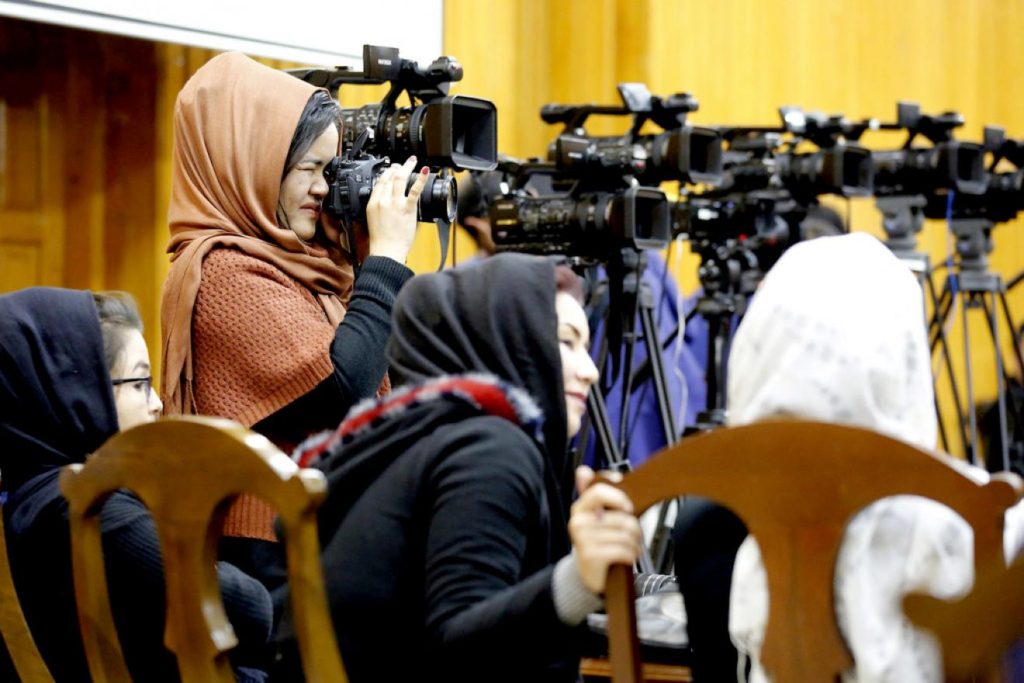(Editor’s note: news sources from UN News, UNESCO; survey. Photo: UNAMA/Fardin Waezi)
New York, April 29 – News organizations, particularly those serving public interest, are threatened with extinction when hit by waves of misinformation and financial support and readership decline during this past year.
UN and philantropic organizations have also noted the causes threatening news outfits: “infodemic”, hate speech and loss of independence in the pursuit of truth among others.
The UN will mark the annual World Press Freedom Day on May 3rd with the UN Educational, Scientific and Cultural Organization (UNESCO) holding the event in Windhoek, Namibia under the theme “Information as a Public Good.”
“The conference will call for urgent attention to the threat of extinction faced by local news media around the world, a crisis worsened by the COVID-19 pandemic,” UNESCO said, as reported by UN News.
“It will put forward ideas to tackle the challenges of our online media environment, push for more transparency of internet companies, strengthen safety of journalists, and improve their working conditions. The conference will also call to support independent media and empower citizens to face these challenges.”
“May 3 acts as a reminder to governments of the need to respect their commitment to press freedom. It is also a day of reflection among media professionals about issues of press freedom and professional ethics.”
The UN General Assembly proclaimed World Press Freedom Day to be held on May 3rd each year at the recommendation of UNESCO’s General Conference.
UN calls for preserving integrity of public-interest media organizations
The coronavirus pandemic has spawned numerous examples of dangerous campaigns of
misinformation and hate speech. It has been difficult for people to access reliable information while they are struggling to stay healthy and safe.
The UN is calling for preserving the independence of public-interest media organizations that have lost readership and financial support.
UN Secretary-General Antonio Guterres said, “The events of the past year have reminded us that access to reliable information is more than just a basic human right – it can also be a matter of life and death. The COVID-19 pandemic has been accompanied by an enormous concurrent “infodemic.”
“Misinformation and hate speech have proliferated, jeopardizing the health of millions of people worldwide, undermining confidence in vaccines and science, and dividing communities and countries,” he said.
Public-interest media organizations have also suffered a decline in financial support during the pandemic. Such a situation threatened their survival and it came at a time when data-based information is critical to all. It is estimated that newspapers alone have lost some 30 billion US dollars over the last year.
“In that regard, I welcome efforts by donors, the private sector and civil society to create the International Fund for Public Interest Media. Ensuring sufficient funding and support is crucial to securing the long- term future of independent media organizations, especially in low- and middle-income countries,” Guterres said.
The Journalism and the Pandemic Project from the International Center for Journalists (ICFJ) and the Tow Center for Digital Journalism at Columbia University.
The project involved a year-long global survey of the impacts of the pandemic on journalism and the responses from over 1,400 English-speaking journalists, editors and CEOs from 125 countries were “startling and disturbing.”
“At a time when the public needs to rely on credible independent journalism to stay safe and informed, journalists and news organizations are grappling with a mental health crisis, financial peril, physical safety threats, and press freedom attacks, while simultaneously battling pandemic levels of disinformation,” the survey said.
Top findings by the survey:
–46 per cent of respondents identified politicians and elected officials as top sources of disinformation
–Facebook was identified as the most prolific spreader of disinformation
–nearly half of respondents said their sources feared retaliation if they were found speaking to journalists during the pandemic
–30 per cent of respondents said news organizations failed to provide protective equipment to field reporters and 70 per cent said mental health impacts covering the pandemic constituted the “most difficult challenge”
United Nations correspondent journalists – United Nations correspondent journalists – United Nations correspondent journalists
United Nations journalism articles – United Nations journalism articles – United Nations journalism articles

